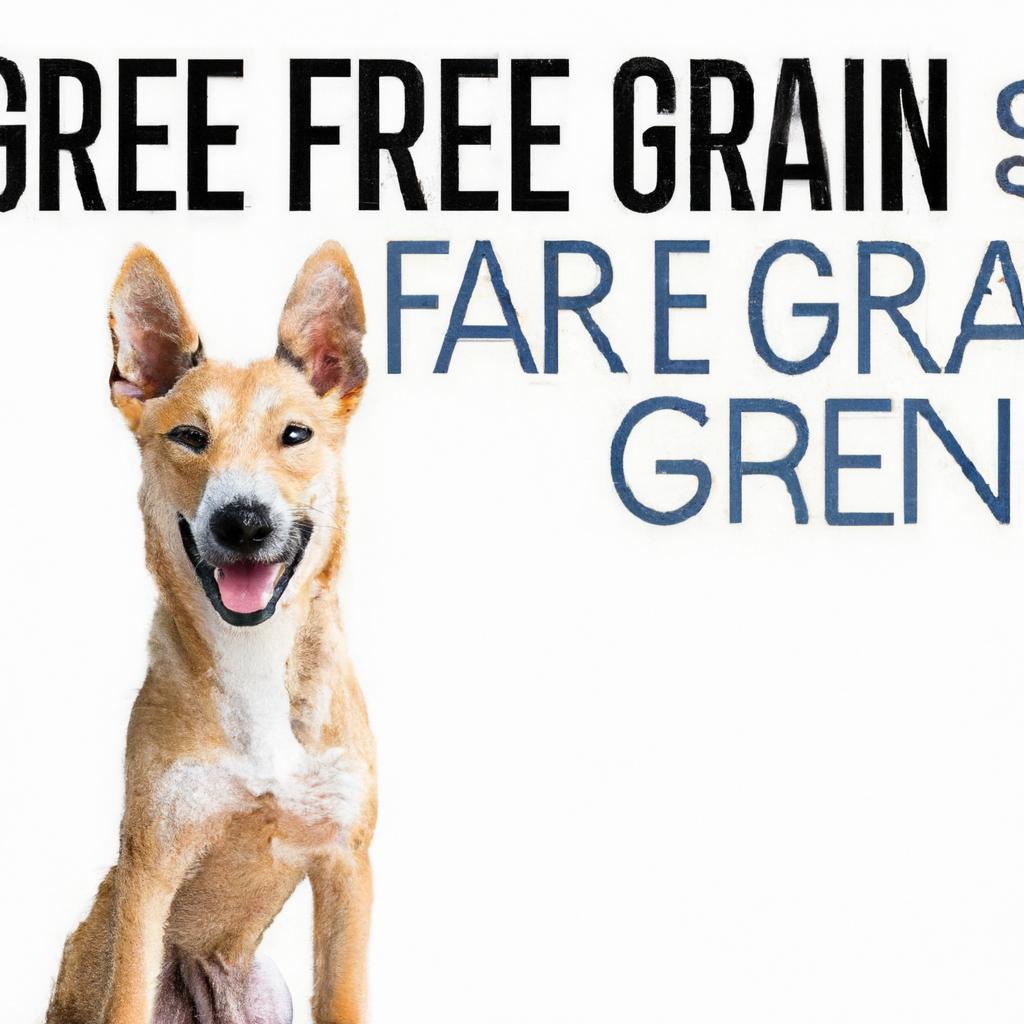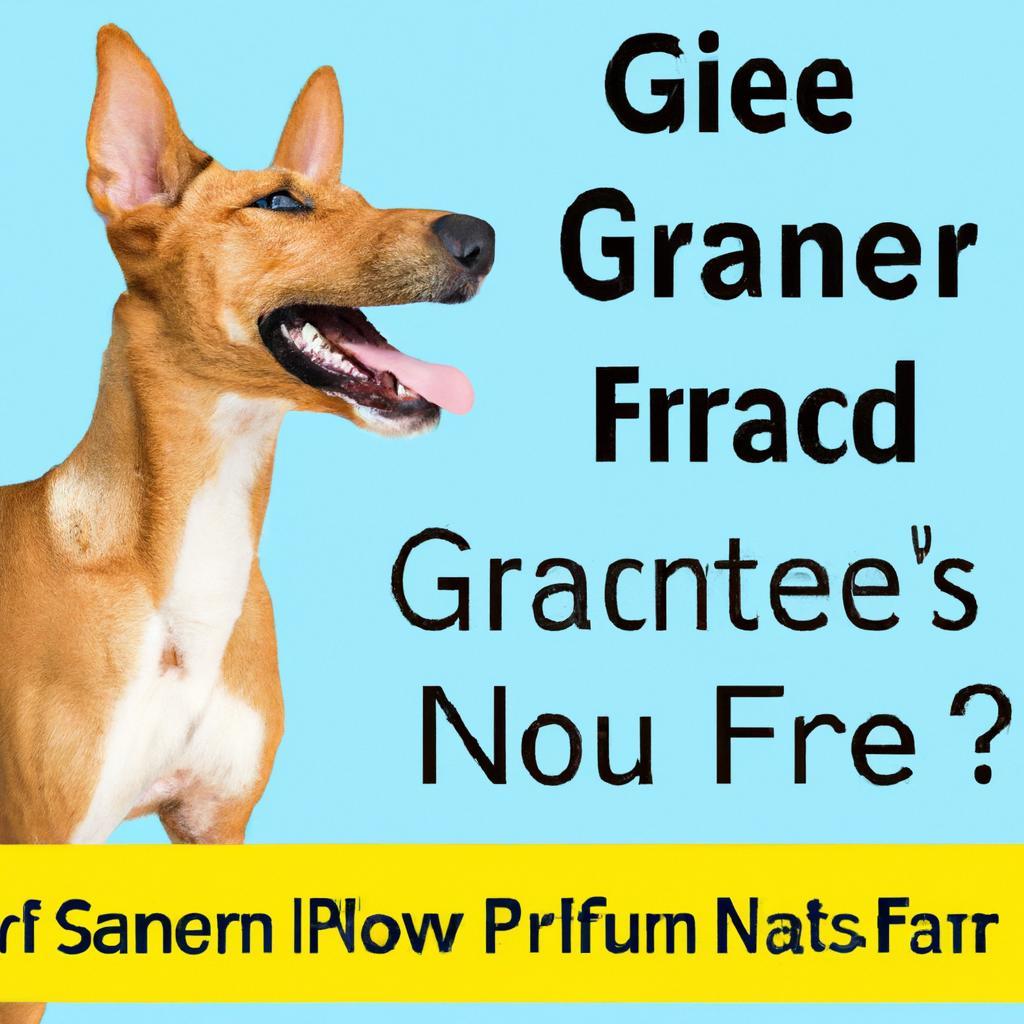Max, a spirited golden retriever, had always loved chasing squirrels and rolling in the grass. But lately, he couldn’t stop scratching, leaving his fur patchy and his owner worried. After consulting a vet, they switched to grain-free dog food. Within weeks, Max’s itching diminished, and his coat regained its luster. The grain-free diet reduced allergens, promoting healthier skin. If your furry friend is itching, consider the benefits of grain-free dog food—it might just be the solution to restore their comfort and joy!
Contents
- Understanding the Link Between Grain-Free Diets and Canine Allergies
- Evaluating the Nutritional Benefits of Grain-Free Dog Food
- Identifying Common Ingredients That May Trigger Itching
- Expert Recommendations for Transitioning to a Grain-Free Diet
- Q&A
Understanding the Link Between Grain-Free Diets and Canine Allergies
Many pet owners are turning to grain-free diets in hopes of alleviating their dogs’ persistent itching and discomfort. This shift is often driven by the belief that grains can trigger allergic reactions in some dogs. While the science behind food allergies in canines is complex, it is essential to understand how a grain-free diet might play a role in managing these issues.
Grain-free dog foods typically replace traditional grains like wheat, corn, and soy with alternative carbohydrate sources such as potatoes, peas, and sweet potatoes. For dogs with sensitivities to grains, this change can lead to a reduction in allergic reactions, resulting in less itching and improved skin health. However, it’s crucial to note that not all dogs with allergies are sensitive to grains, and some may react to other ingredients commonly found in grain-free formulations.
When considering a grain-free diet, it’s important to focus on the overall quality of the ingredients. Look for products that contain high-quality protein sources and avoid those with fillers or artificial additives. A well-balanced diet can support your dog’s immune system and skin health, potentially reducing the severity of allergic reactions. Additionally, incorporating omega fatty acids and other beneficial nutrients can further enhance skin condition and coat quality.
Ultimately, while a grain-free diet may help some dogs find relief from itching, it is not a one-size-fits-all solution. Consulting with a veterinarian or a pet nutritionist can provide valuable insights tailored to your dog’s specific needs. They can help determine whether a grain-free diet is appropriate and guide you in selecting the best food options to support your furry friend’s health and well-being.
Evaluating the Nutritional Benefits of Grain-Free Dog Food
When considering the nutritional benefits of grain-free dog food, it’s essential to understand how these diets differ from traditional options. Grain-free formulations often replace grains with alternative carbohydrate sources such as sweet potatoes, peas, and lentils. These ingredients can provide a rich source of vitamins, minerals, and fiber, which are crucial for maintaining a dog’s overall health. Additionally, many grain-free options are higher in protein, which supports muscle development and energy levels.
One of the primary advantages of grain-free dog food is its potential to reduce food sensitivities and allergies. Dogs with grain allergies may experience various symptoms, including itching, skin irritations, and gastrointestinal issues. By eliminating grains from their diet, pet owners may notice a significant improvement in their dog’s skin condition and overall comfort. This shift can lead to a more vibrant coat and a decrease in scratching, allowing dogs to enjoy a better quality of life.
Moreover, grain-free diets often emphasize high-quality animal proteins, which are essential for a dog’s health. These proteins not only support muscle growth but also contribute to healthy skin and coat. Ingredients like chicken, beef, or fish are commonly found in grain-free formulations, providing essential amino acids that promote optimal body function. The inclusion of omega fatty acids, often derived from fish oils, can further enhance skin health and reduce inflammation, addressing the root causes of itching.
It’s also worth noting that grain-free dog food can be beneficial for dogs with specific dietary needs. For instance, dogs prone to obesity may benefit from the lower carbohydrate content found in many grain-free options. This can help maintain a healthy weight, which is crucial for overall well-being. Additionally, the variety of flavors and textures available in grain-free diets can cater to picky eaters, ensuring that dogs receive the nutrition they need while enjoying their meals.
Identifying Common Ingredients That May Trigger Itching
When it comes to addressing itching in dogs, understanding the ingredients in their food is crucial. Many commercial dog foods contain common allergens that can provoke skin irritations and discomfort. Identifying these ingredients can help pet owners make informed choices about their dog’s diet. Some of the most prevalent culprits include:
- Grains: Wheat, corn, and soy are often linked to allergic reactions in dogs. These ingredients can trigger itching and other skin issues, making grain-free options appealing for sensitive pets.
- Animal Proteins: Certain proteins, such as beef, chicken, and lamb, may cause adverse reactions in some dogs. If your dog shows signs of itching, it might be worth exploring alternative protein sources.
- Dairy Products: Lactose intolerance is common in dogs, leading to gastrointestinal upset and skin problems. Avoiding dairy can help alleviate itching in sensitive individuals.
- Artificial Additives: Preservatives, colors, and flavors can irritate your dog’s skin. Opting for natural ingredients can reduce the risk of allergic reactions.
In addition to these common allergens, it’s essential to consider the overall quality of the ingredients in your dog’s food. Grain-free diets often emphasize high-quality proteins and wholesome fruits and vegetables, which can provide essential nutrients without the risk of triggering allergies. By switching to a grain-free formula, you may find that your dog’s itching subsides as their skin health improves.
Monitoring your dog’s response to dietary changes is vital. Keep a close eye on their skin condition and overall well-being after introducing a grain-free diet. If you notice a reduction in itching and irritation, it could indicate that the previous ingredients were problematic. However, if symptoms persist, consulting with a veterinarian can help identify other potential allergens or underlying health issues.
Ultimately, the key to managing your dog’s itching lies in understanding their unique sensitivities. By carefully selecting a grain-free dog food that avoids common allergens, you can create a tailored diet that promotes skin health and overall comfort. Remember, every dog is different, and what works for one may not work for another, so patience and observation are essential in finding the right solution for your furry friend.
Expert Recommendations for Transitioning to a Grain-Free Diet
Transitioning your dog to a grain-free diet can be a beneficial step, especially if you suspect that grains are contributing to your pet’s itching and discomfort. To ensure a smooth transition, it’s essential to approach the change gradually. Start by mixing a small amount of the grain-free food with your dog’s current diet, gradually increasing the proportion of the new food over a week or two. This method helps to minimize digestive upset and allows your dog to adjust to the new ingredients.
When selecting a grain-free dog food, look for high-quality options that prioritize **real meat** as the first ingredient. This ensures that your dog receives the necessary protein for optimal health. Additionally, consider foods that include **healthy fats** and **nutrient-rich vegetables** to provide a balanced diet. Ingredients such as sweet potatoes, peas, and lentils can offer essential vitamins and minerals while being gentle on your dog’s digestive system.
Monitoring your dog’s response to the new diet is crucial. Keep an eye on their skin condition, coat quality, and overall energy levels. If you notice improvements in their itching and scratching, it may indicate that the grain-free diet is beneficial. However, if symptoms persist or worsen, consult your veterinarian to rule out other potential allergens or underlying health issues. They can provide tailored advice and may suggest additional dietary adjustments or supplements.
remember that every dog is unique, and what works for one may not work for another. It’s essential to be patient and flexible during this transition. Engage with your veterinarian for ongoing support and recommendations, and consider keeping a food diary to track your dog’s reactions to different ingredients. This proactive approach can help you make informed decisions and ensure your furry friend enjoys a happier, itch-free life.
Q&A
-
Can grain-free dog food help with my dog’s itching?
Grain-free dog food can potentially alleviate itching in dogs, especially if they have a grain allergy or sensitivity. By eliminating grains, you may reduce the risk of allergic reactions, leading to healthier skin and a decrease in itching.
-
What ingredients in grain-free dog food might cause itching?
While grain-free dog food removes grains, it may still contain other allergens such as certain proteins (like chicken or beef) or fillers (like peas or potatoes). It’s essential to identify the specific ingredient causing the reaction to effectively manage your dog’s itching.
-
How long does it take to see results from switching to grain-free dog food?
Results can vary, but many pet owners notice improvements within 4 to 6 weeks after switching to grain-free dog food. Consistency is key, so ensure you maintain the new diet to assess its effectiveness.
-
Should I consult a vet before switching to grain-free dog food?
Absolutely. Consulting your veterinarian is crucial before making any dietary changes. They can help determine if grain-free food is appropriate for your dog and recommend specific brands or formulations tailored to your pet’s needs.
while grain-free dog food may alleviate itching for some dogs, it’s essential to consult with your veterinarian for a tailored approach. Prioritizing your pet’s health ensures they thrive, free from discomfort and full of vitality.




